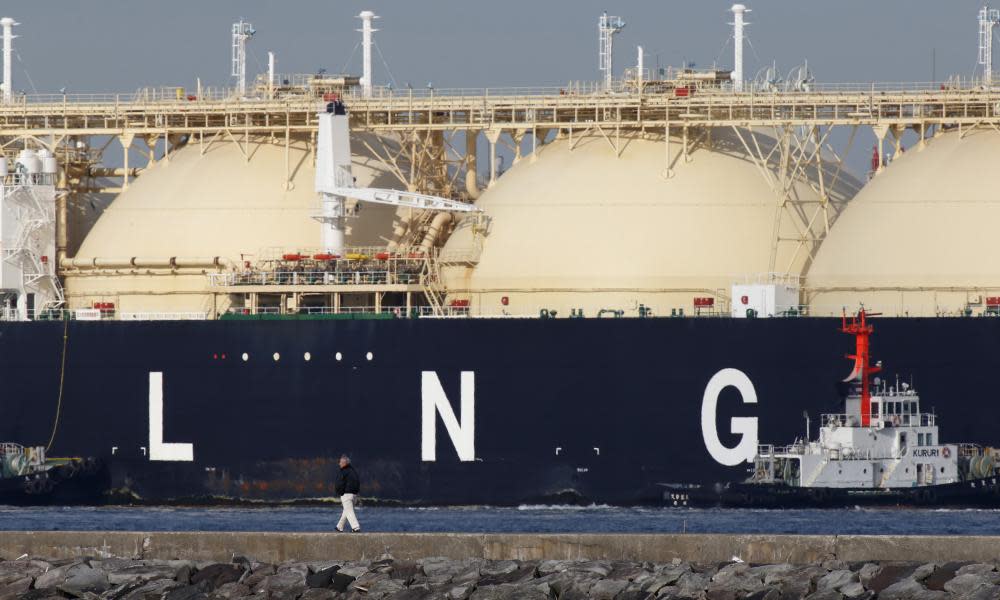Australia to impose gas export controls if domestic shortage hits

The Turnbull government will impose export controls when there is a shortage of gas in the domestic market, acting on advice from the energy market operator and Australia’s competition watchdog.
Malcolm Turnbull confirmed on Wednesday night the government had taken the decision to intervene in the market because Australia’s liquefied natural gas producers had failed to give the government concrete guarantees on domestic supply.
“It is unacceptable for Australia to become the world’s largest exporter of liquefied natural gas but not have enough domestic supply for Australian households and businesses,” Turnbull said in a statement issued on Wednesday night.
He said the government would introduce a new gas security mechanism allowing the imposition of export controls on companies when there is a shortfall of gas supply in the domestic market.
Turnbull said the resources minister, in consultation with relevant portfolio ministers, would impose export controls on the LNG industry based on advice from the market operator and regulator.
“If an exporter is not a net contributor to the domestic market – that is, they draw more from the market than they put in – they will be required to outline how they will fill the shortfall of domestic gas as part of their overall production and exports,” the prime minister said.
“The government will not prescribe how the exporter must respond, giving companies considerable flexibility in finding commercial solutions – such as swapping cargoes out of portfolios or on the spot market.”
The dramatic development will likely infuriate the LNG industry, which has campaigned against the imposition of a domestic reservation policy in Australia.
Turnbull said in his statement the government remained committed to LNG exports “but not at the expense of Australian interests”.
He said the action would comply with Australia’s international obligations and would only apply to east coast LNG exporters.
The prime minister also signalled the intervention would be temporary. “The government expects the decision to be a targeted temporary measure of repair to restore certainty to the market during this time of transition.”
The government has met twice with LNG exporters and has been warning for months it would impose export controls in the event the gas producers did not guarantee domestic supply.
The government recently directed Australia’s competition watchdog to monitor the LNG industry as part of efforts to force more transparency in the gas market.
The government has been under sustained political pressure from Labor to muscle up to the gas producers to prevent shortfalls over the coming months. It has also been under pressure from groups representing manufacturers, who argue surging prices and a lack of reliable supply could see businesses going to the wall.
The Australian Industry Group has proposed gas swaps, in which export contracts are fulfilled using overseas gas, to reserve more for Australia’s domestic supply – a proposal that has caused tension between it and the gas industry, which favours a hands off approach.
A week ago, the government signalled it was open to facilitating gas swaps.
The government was forced to intervene with the industry after the Australian Energy Market Operator issued a public warning that Australia was facing energy shortages that could close businesses if governments did not carry out national planning.
Australia is the second-largest LNG exporter, with two-thirds of the country’s gas sent overseas. The peak industry body, the Australian Petroleum Production and Exploration Association, aims to become the world’s largest LNG exporter by 2020.

 Yahoo News
Yahoo News 
